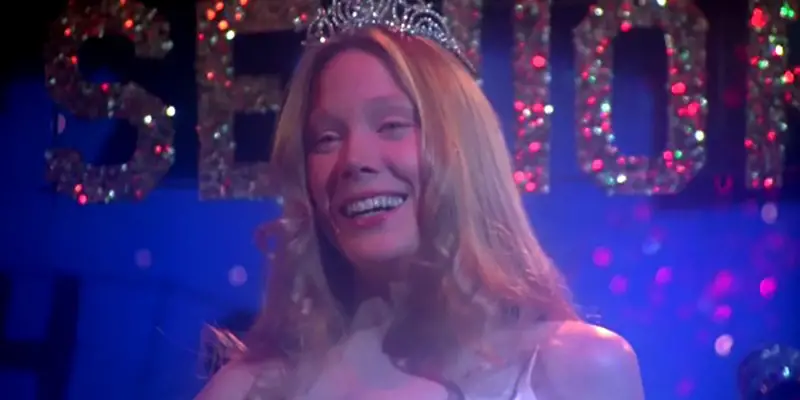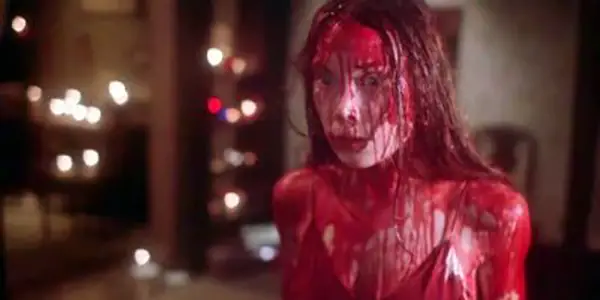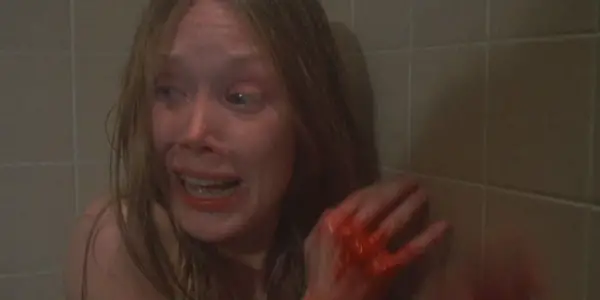CARRIE: On Bullying, Revenge And Female Taboos

I am a second-year political science student at the University…
Carrie is a movie inspired by one of Stephen King’s first novels, a dark story mixed with dramatic notes, where all the uncertainties and fears of adolescence, such as the problem of being different in a society that does not forgive, are transformed into anger and the desire for revenge.
The movie was directed by Brian De Palma in 1976, but I believe it is a timeless story; indeed there have been many remakes, the last one in 2013 by Kimberly Peirce, setting it in a modern context.
De Palma‘s film, which can be considered a cult classic, shows the daily life of teenagers at an American high school and explores the theme of bullying deeply, adding some gory scenes towards the end. Even if the themes of the movie are not new, they are seen through a different lens, and I think the greatness of the movie lies in the fact that we cannot really classify it into one unique genre.
The Story
The plot is pretty simple. The protagonist, Carrie White, played by Sissy Spacek, follows all the clichés of troublesome adolescence and is isolated by her classmates. She is different from the other, ordinary teenagers, and in the beginning of the movie discovers that she has telekinetic powers that she doesn’t know how to control. Nevertheless, she does not use her power at first to defend herself from her evil classmates, and has to stand their bullying and jokes.
Her classmates are not the only ones that make her life a hell; her bigot mother, Margaret White, (played by an incredible Piper Laurie), is Carrie’s biggest fear. Margaret, with her strange and extremely religious behavior, is likely one of the causes of Carrie’s isolation.

As the story continues, Carrie is invited to the high school prom by the guy she’s in love with, Tommy Ross (William Katt). Tommy already has a girlfriend named Sue Snell (played by an amazing Amy Irving), who convinced him to go to the prom with Carrie to atone for her bad behavior towards the girl earlier. This, for Carrie, is a dream come true.
However, the terrible Chris Hargensen, played by Nancy Allen, wants to ruin Carrie’s dream night at any cost, and turns her prom into a nightmare. Her plan is to elect Carrie as the queen of the ball, and when she will be on the stage, to pour a bucketful of pig’s blood over her. After this horrible joke takes place, nobody expects Carrie’s bloody and violent revenge. At the end, all her anger and frustration for the previous jokes made by her classmates transform her into a machine of destruction, and she uses her telekinetic powers to create chaos and death.
The taboo around menstruation
One of the most interesting and meaningful scenes of the movie is when Carrie is discovered to have her period in the high school dressing room, without knowing what it is, as her mother never talked to her about menstruation. This scene addresses the mostly ignored societal taboo surrounding menstruation well.

In our still misogynist society the high cost of sanitary pads aren’t generally questioned, and in developing countries it even prevents many girls from attending school. In fact, in most of these countries, due to the low sanitary standards, it is difficult for women to have a private and adequate management of their period. The scene not only signifies the journey from childhood to adolescence, but also symbolizes the taboo surrounding the subject.
Who is the real monster?
Carrie makes us wonder who is the true monster of the story. Is it Carrie, who has exacted a bloody revenge after years of being taunted and bullied, or the society that labelled her as different, isolated her and made fun of her? Bullying is still a big issue in our modern era, especially for the fact that now, with new technologies, we have undergone a shift from real bullying to cyberbullying, where the victim has no way of escaping from the virtual prison of the net.
In the end, Carrie teaches us that, most of the time, there is an explanation for every bad action taken by someone, and both the bully and the victim have a story to tell. So instead of pointing fingers, we should think about how to help those people and how to prevent future tragic events from happening.
In conclusion
If you have never seen Carrie, I would suggest you watch it – it’s a milestone in the history of horror movies, and a must-see for any horror fan. Moreover, it’s a great film to reflect on one of the happiest and most troublesome phases of life. Carrie is a more meaningful film than it would seem at first glance; don’t judge it by its cover, and look further than its bloody and violent ending.
What do you think is the best way to change a bully’s behavior?
Does content like this matter to you?
Become a Member and support film journalism. Unlock access to all of Film Inquiry`s great articles. Join a community of like-minded readers who are passionate about cinema - get access to our private members Network, give back to independent filmmakers, and more.
I am a second-year political science student at the University of Political Science and International Relations in Pavia, currently in the Erasmus program at Trinity College Dublin. I would love to work for an NGO when I graduate and am very interested in opportunities for work experience and volunteering in this area. I am passionate about human rights; I am involved with Amnesty International in college, and specifically concerning ‘My Body, My Rights’ and the legalization of abortion in Ireland. For Amnesty, I am also doing the School Speaker program. Outside the political field, I am really interested in cinema. My favourite genre is horror, as a matter of fact I have always loved Stephen King and some movies inspired by his novels, such as "Stand by me".













